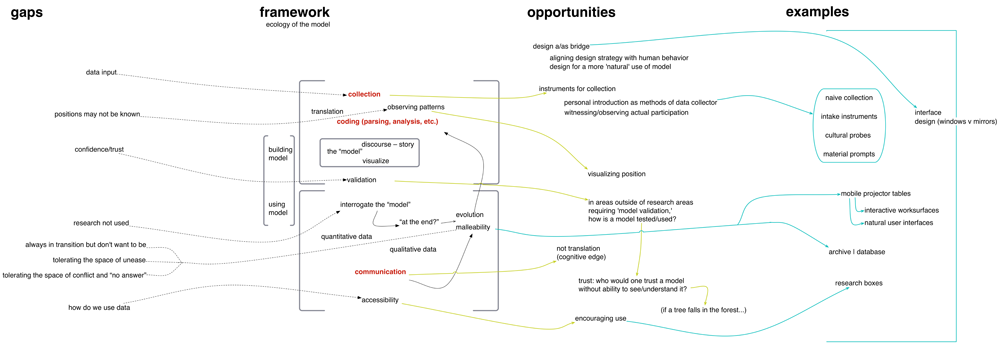The interest in Thinklab as a concept and a space has been overwhelming, far larger than the capacity of the small prototype space (and our time) can accommodate.
The research that we have done has demonstrated a significant need for an administratively maintained, accessible, and adaptable environment like this here on campus (and beyond).
For a Thinklab model to flourish and foster transdisciplinary work at a university, the collective intelligence of the campus community is required.
Support from administrative units (discipline-agnostic in principle), is required to advance the prototype into a functional environment and manage and maintain it in a way that fosters a ‘live’ connection to the evolving research on and underlying the prototype.
Continued work on Thinklab – both the model and the prototype, as well as any future deployments of the prototype as fully supported and functional environments – will require the expertise of multiple disciplines (information architecture, data science, archiving, HCI, education, design thinking, assessment, interdisciplinary studies, etc.)
At its highest level, the Thinklab model offers many opportunities for research collaboration.
- It represents a number of topics highly relevant to current federal granting agencies: interdisciplinarity, collaboration, learning environments (especially relevant to STEM interests of the NSF), digital humanities, ‘big’ data, etc.
- There is a built-in dissemination/application component (the prototype and its open-source framework) to any research done with us on Thinklab’s infrastructures.
At this time, we would like to connect our work on Thinklab into a larger multidisciplinary conversation on campus and beyond, and would like to commence a working group with the goal of utilizing our research to foster transdisciplinary engagements for research, teaching, learning, and practice.
